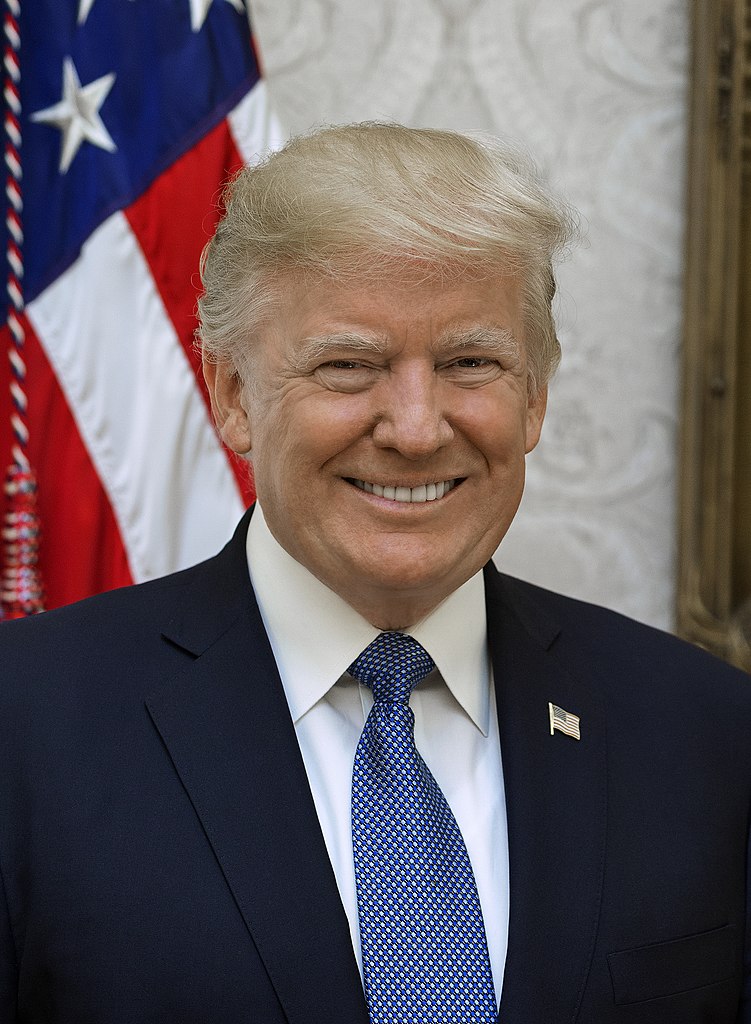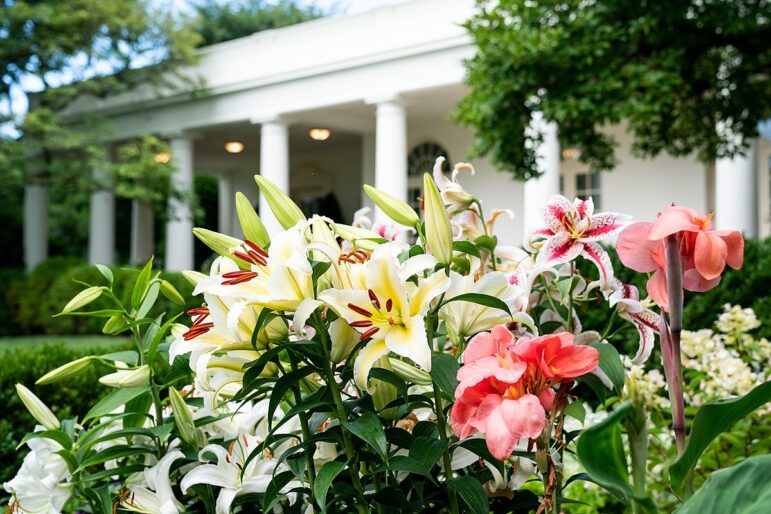WASHINGTON, D.C. — On May 1, 2025, while many in our community were celebrating Beltaine, President Donald Trump signed an executive order creating a new Presidential Commission on Religious Liberty, using the occasion to question the long-established principle of separation between church and state. The announcement was made during a National Prayer Day event held in the White House Rose Garden, where Trump directly challenged a constitutional boundary that has long guided American public life.
Though not known for regular church attendance, Trump has leaned heavily on Christian rhetoric and imagery throughout his political career, courting Evangelical voters and aligning himself with conservative religious leaders. His administration previously established a Faith and Opportunity Initiative, and his presidency saw pastors praying in the Oval Office and at Cabinet meetings. More recently, Trump attended Pope Francis’ funeral at the Vatican, highlighting his ongoing focus on religious symbolism.

White House Logo
The newly formed commission will be chaired by Texas Lt. Gov. Dan Patrick, with Dr. Ben Carson, former Secretary of Housing and Urban Development, serving as vice chair. Patrick praised the initiative as a return to America’s founding ideals:
“The commission is comprised of some of the foremost faith leaders, scholars, and thinkers of our time,” he said in a statement. “We will carry out the president’s important mission to preserve and strengthen religious liberty in our country.”
During the ceremony, Patrick commended Trump directly, saying, “There’s never been a president who’s invoked the name of Jesus more than you.”

Official portrait of President Donald J. Trump, Friday, October 6, 2017. (Official White House photo by Shealah Craighead)
The full mandate of the commission remains unclear, but it will reportedly meet at the White House. A list of commission members released alongside Patrick’s remarks includes high-profile figures from conservative religious, political, and legal circles. Notably absent are representatives from minority faith traditions or voices advocating for a more pluralistic approach to religious liberty.
Commission Members Include:
- Dr. Ben Carson, a retired neurosurgeon and outspoken Evangelical Christian, known for his views on education and religious values. The White House notes that “Dr. Carson is the founder of the American Cornerstone Institute. His most recent book, The Perilous Fight, outlines what needs to be done to restore the foundations of family in America.”
- Ryan Anderson, PhD, president of the Ethics and Public Policy Center, whose work opposes gender-affirming care and same-sex marriage.
- Bishop Robert Barron, Catholic theologian and founder of Word on Fire Ministries, noted for his media outreach and defense of Catholic orthodoxy.
- Carrie Boller, a former Miss USA first runner-up and author who has emerged in conservative media circles. Boller is the author of Still Standing: The Untold Story of My Fight Against Gossip, Hate, and Political Attacks.
- Cardinal Timothy Dolan, Archbishop of New York, known for his political engagement and advocacy on religious freedom and abortion. He is president of the United States Conference of Catholic Bishops and has also completed terms as chair of the Bishops’ Committee on Pro-Life activities and the Bishops’ Committee for Religious Liberty.
- Rev. Franklin Graham, Evangelical leader and Trump ally, president of Samaritan’s Purse, an organization that provides disaster relief and medical aid around the globe.
- Allyson Ho, a prominent constitutional attorney affiliated with the Federalist Society.
- Dr. Phil McGraw, television personality known for “tough love” advice, who has recently increased his involvement in conservative commentary. Dr. Phil’s most recent book, We’ve Got Issues: How You Can Stand Strong for America’s Soul and Sanity, encourages Americans to reclaim the principles of hard work, independence, faith, and ingenuity.
- Eric Metaxas, a Christian author and radio host advocating Christian nationalism and American exceptionalism.
- Kelly Shackelford, the CEO of First Liberty Institute, a legal group defending Christian religious expression.
- Rabbi Meir Soloveichik, an Orthodox Jewish scholar noted for interfaith engagement and conservative political commentary. He also serves as the Director of the Straus Center for Torah and Western Thought at Yeshiva University, and as a Senior Scholar at the Tikvah Fund.
- Pastor Paula White, a Pentecostal preacher and Trump’s longtime spiritual advisor, known for her prosperity gospel messaging. She is the founder and president of Paula White Ministries and the National Faith Advisory Board. She is the overseer and a teaching pastor at StoryLife Church in greater Orlando, Florida. Pastor White was an advisor to President Donald Trump in the Faith and Opportunity Initiative during his first term in office, and now she serves as the Senior Advisor to the White House Faith Office.
White, who oversees the Faith Office, led the group in prayer:
“Prayer is not a religious act, it’s a national necessity,” she said. Asking God to grant Trump “wisdom beyond human understanding and capability,” she prayed for “a spiritual reset in our nation, a return to what is right, a reverence for what is sacred, a real alignment with your divine purpose.”

The Rose Garden of the White House. (Official White House Photo by Joyce N. Boghosian). Public Domain.
While the commission’s stated goal is to protect religious freedom, no members from minority faiths or dissenting perspectives on church-state separation have been included. The move has already drawn scrutiny from civil liberties advocates, who warn that the commission could further blur the lines between religion and governance.
Critics argue that its membership, heavily skewed toward conservative Christian leaders, raises concerns about political partisanship and lack of religious diversity.
While announcing the creation of the Commission at the Rose Garden National Day of Prayer event, President Trump made clear his objectives, “They say separation between church and state … I said, ‘All right, let’s forget about that for one time,’” he said to the religious leaders and supporters gathered at the event. “They said, really, there’s separation. I don’t know. Is that a good thing or a bad thing? I’m not sure. But whether there’s separation or not, you guys are in the White House, where you should be… We’re bringing religion back to our country, and it’s a big deal.”
The Wild Hunt is not responsible for links to external content.
To join a conversation on this post:
Visit our The Wild Hunt subreddit! Point your favorite browser to https://www.reddit.com/r/The_Wild_Hunt_News/, then click “JOIN”. Make sure to click the bell, too, to be notified of new articles posted to our subreddit.